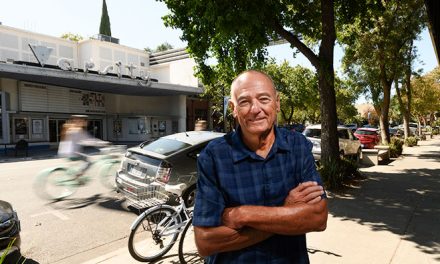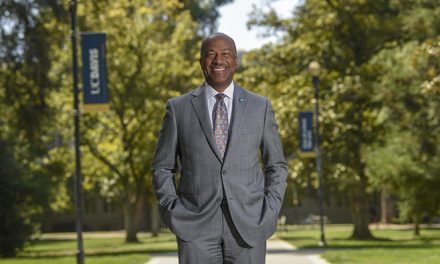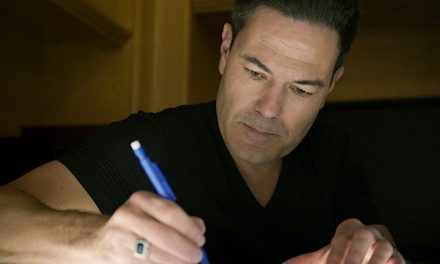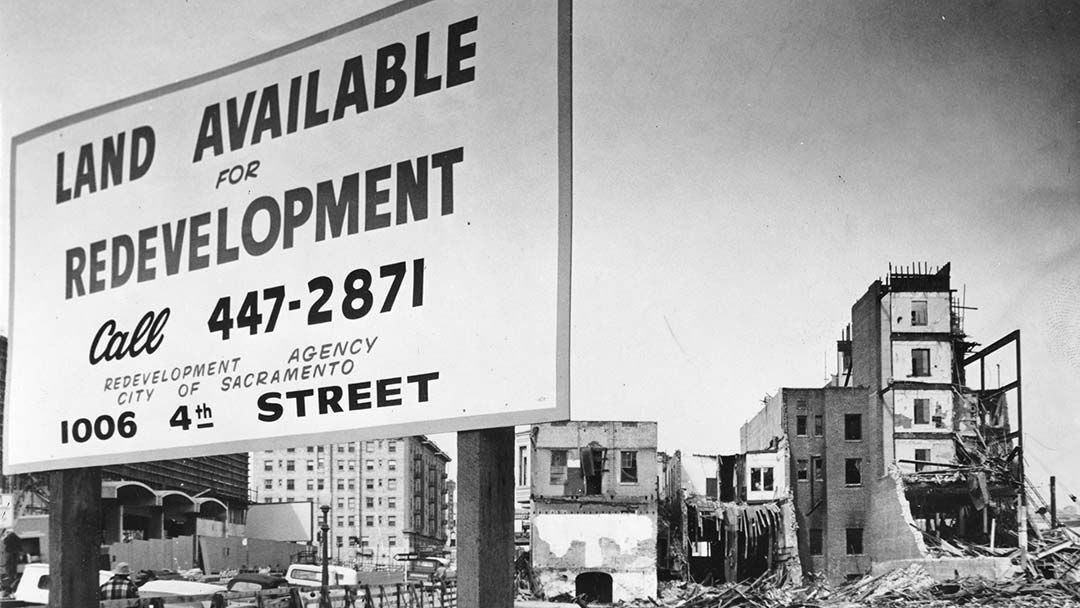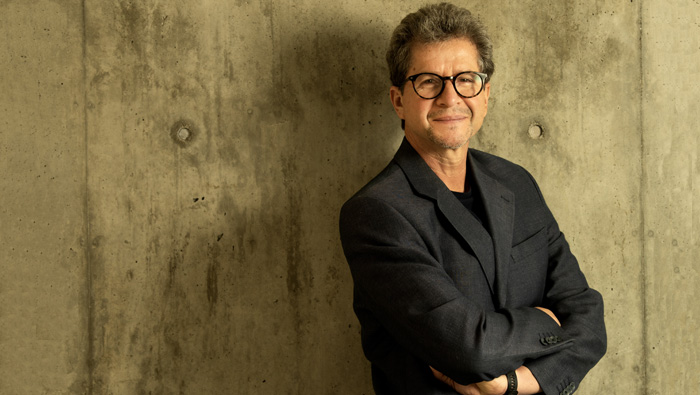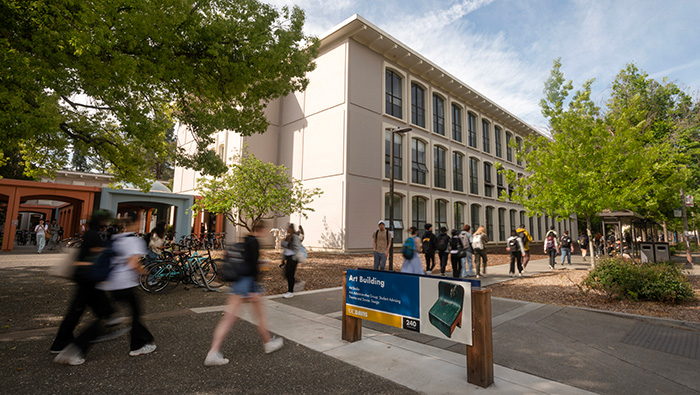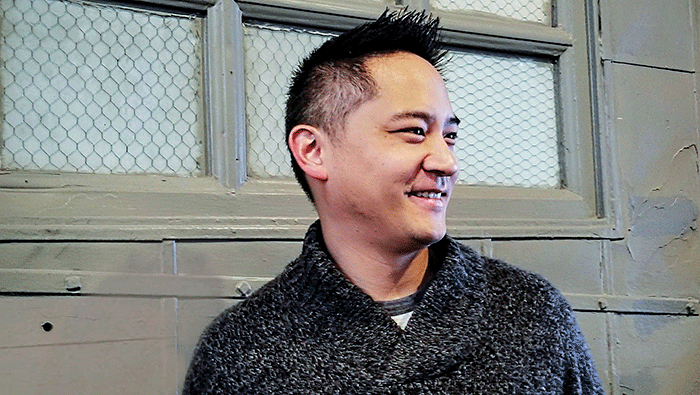
Future Stories
For his debut novel, Mike Chen ’00 imagined a futuristic world complete with flying cars. Here and Now and Then (Mira Books, 2019) follows Kin Stewart, a secret agent from 2142 as he tries to get out of a botched mission that stranded him in suburban San Francisco since the 1990s — and includes two scenes at UC Davis. Here, Chen talks about the new book — and the next one — with UC Davis Magazine editor Jocelyn Anderson.
Jocelyn Anderson: You were a mechanical engineering major at UC Davis. How does that education translate into your career now?
Mike Chen: My degree is in mechanical engineering, but when I was at school, I wanted to take advantage of the learning environment. I took a creative writing class my senior year. My teacher, Wendy Sheanin, is now an executive at Simon & Schuster and she encouraged me to keep writing after graduation. I don’t think I would be here without her. That class at UC Davis — it felt like a creative freedom that I’ve never quite realized before. It just opened this massive door for me.
JA: How did you get the idea for this book?
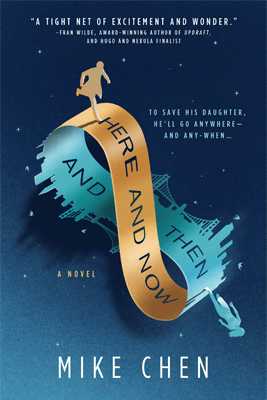
MC: The idea came from watching a lot of “Dr. Who.” Most of my story ideas come from a spark from any kind of media I’m consuming a lot of at the time. I take something I’m watching or reading or playing, and then my brain asks, “What if this happens?” I’d been watching a lot of time travel stuff. I love sci-fi, but the stories I want to tell are very intimate in scale. They are not saving-the-galaxy stories.
JA: What can you tell us about the scenes that take place at UC Davis?
MC: I’m trying to think of the best way to say this without spoiling the book. Because it does happen in the final act of the book. But basically [Kin’s] daughter is in peril, and she is in peril as a grad student at UC Davis. You see downtown Davis very briefly in 2030. I can’t really say more than that.
JA: What does your idea of the future look like in 2142?
MC: There’s a lot of future tech there. I looked at how much daily life can change in the span of 125 years. I looked at the late 1800s, the late 1900s and compared ways to get water, cook, store food, to get transportation. Then you also have the forms of communication that have evolved over that time. There are flying cars. I hope we have flying cars in 100 years!
JA: This is a two-book deal. Any details about the second book that you can share?
MC: We just settled on the title: A Beginning At The End. It comes out January 2020. It’s a post-pandemic story. It takes place after 5 billion people have died. I wanted to examine the trauma of going on and trying to live a normal life after something so devastating happens. It’s set in post-pandemic San Francisco. There’s also a journey to the UC Davis campus, which has been turned into a survival commune. It’s visited in the final act, but it’s very important to go there, I’ll put it that way. I loved my time at UC Davis, what can I say?

